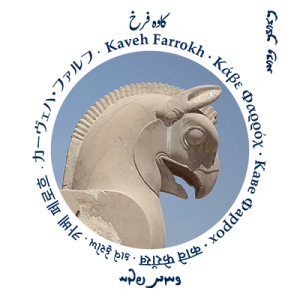Grossing over 70 million dollars in its first week of release, the movie “300” is set to crash into the list of highest grossing Hollywood blockbusters. Its strong opening is a clear indicator of its success with the North American and by implication, European audiences. Although this picture is based on a graphic novel by Frank Miller and directed by Zack Snyder (“Dawn of the Dead”), it is already being portrayed as a “historical” movie, and will be perceived as such by many (less discerning) viewers. More significant however, are the conclusions that are being derived from this picture.
The producers of the movie (as well as the actors) are honest in stating that they did not consult primary historical sources. The writer of the comic book appears to have relied on the writings of Greek historian Herodotus, whose works, though valuable, inevitably contain an element of bias, as do any historical works from any culture.
My article will not discuss the cinematography (a job best left to the film critics), nor is it a criticism of the cast and crew. There has been no agenda on the part of the original novelist, movie director, cast and crew to promote an anti-Iranian agenda. The movie however (no matter how sincerely it was intended as entertainment), is nevertheless purveying messages; messages most certainly unintended by Miller or the film producers.
The following commentary is specifically directed against the very human biases and distortions that currently pervade against ancient Iran and Iranians; the very same views that “300” has (inadvertently) stimulated.
Though perhaps trivial, I feel my background gives me a unique perspective. Born of Iranian parents in Greece, I am a student of both ancient Greece and its “East Roman” successor, Byzantium, alongside my main research interest, ancient Iran. My Greek friends often cite me as a blend of ancient Iran (or what the west terms as “Persia”) and “Hellas” (Greece). It is often overlooked that an Iranian can admire ancient Greece just as a Greek can do likewise with Persia. A Greek friend stated this to me in an e-mail on Monday, March 12, 2007:
“I watched the movie 300…and I was totally disappointed…The movie demonized the Persians, everything that was depicted in the movie about the Persians was untrue. The movie demonized also the Greeks and through some words of Leonidas Greek philosophers and Athenian civilization were downrated…I wonder why I should watch demons and Spartans with a false image…there was no showing of glorious brave and smart people from both sides. I have learned that what Spartans did in Thermopyles was magnificent, that they did not match any enemy but what they did there was really magnificent because it was achieved against a very brave, worthy and glorious enemy. …very few understand it.”
In the course of their historical intercourse, Greece and Persia have created breathtaking works in domains such as the arts, architecture, sciences, music and of course, democracy and human rights. It is interesting that many modern Greeks acknowledge and appreciate ancient Iran as a civilization as worthy as their own, yet the same is not necessarily true in northwest Europe and North America.
- The Notion of Democracy and Human Rights
- What really led to War
- The Military Conflict: Separating Fact from Fiction
- The Error of Xerxes: The Burning of Athens
- The “West” battling against the “Mysticism” of “the East”
- The Portrayal of Iranians and Greeks
- A Note on the Iranian Women in Antiquity
- “Good” versus “Evil”
- Bibliography



